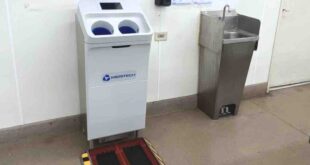More clarity is required on how environmental sustainability is measured, after an international survey by global assurance provider – LRQA – revealed that only 38% of organisations are using at least one management standard to drive progress.
Detailed in a report – Climate Focus – more than 1,100 sustainability professionals across 11 countries and 13 industries were surveyed. In addition, to an inconsistent approach to working towards recognised standards, questions have also been raised about the level of verification being used.
Notably, more organisations require third-party verification from suppliers (55%) than have it themselves, and only 46% are having their data and information independently verified. Following this lack of clarity, independent third-party verification should be regarded as an essential tool for global organisations to show themselves as following best practice in pursuing transparency, trust and supply chain visibility.
LRQA is warning that current approaches could lead to further scrutiny from investors.
Heather Moore, Supply Chain Technical Director for Sustainability, LRQA said: “The results of our survey are positive in that organisations are showing awareness of the need to measure and manage their environmental sustainability commitments. However, it is clear from our findings that many are relying on self-verification, which is difficult to monitor and report accurately. Any sign of a lack of transparency could have significant consequences, such as a downturn in investor confidence and customer trust.”
The survey also found that almost all (93%) of sustainability leaders surveyed identified at least one internal barrier to help achieve environmental sustainability targets. A lack of knowledge, resourcing, complexity and cost were all cited as problematic.
According to LRQA, these findings show that more support is required from boardroom level if greater resource allocation is needed. Moore said: “Despite the relatively positive feedback from sustainability professionals, the results show some clear challenges facing organisations. It is concerning that sustainability leaders listed a lack of resources as a key barrier to verification against environmental objectives and commitments, despite acknowledging the value of using verification to a standard.
“It shows us that there is still work to be done to ensure environmental sustainability goals are met. It is crucial that businesses do not tackle these challenges alone. As demand for substantiated commitments are likely to increase, seeking independent third-party verification can help drive both credibility and confidence from both customers and stakeholders.”
LRQA’s survey saw them reach 1,123 sustainability leaders who work in mid-to-large organisations across 11 countries: China, France, Germany, Italy, Japan, The Netherlands, Singapore, Spain, Thailand, UK and USA. The findings are explored in a first-of-its-kind report looking at preparedness around environmental sustainability in business.
To download the report, click HERE.
 Engineer News Network The ultimate online news and information resource for today’s engineer
Engineer News Network The ultimate online news and information resource for today’s engineer



